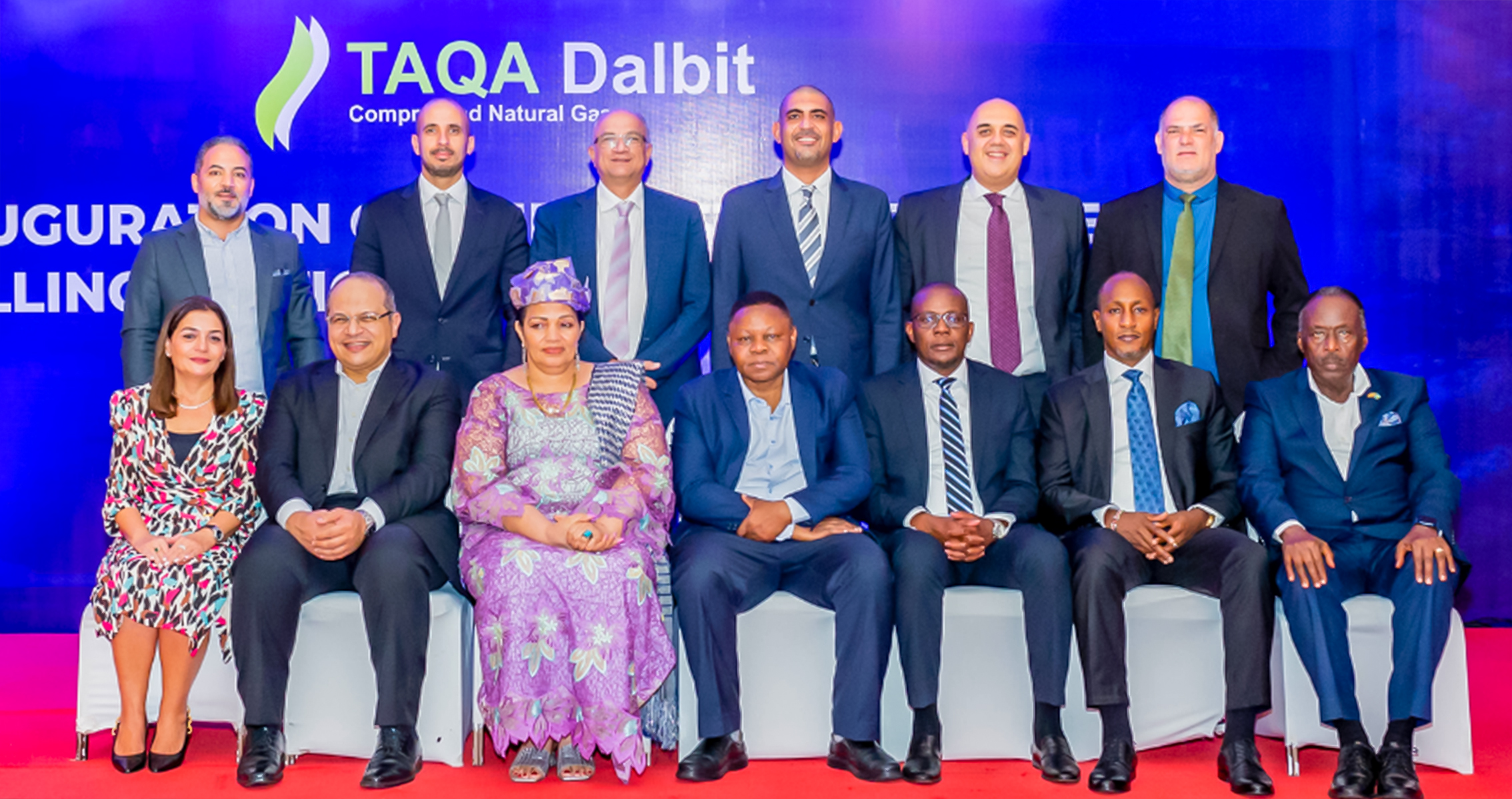By Bonface Orucho
Tanzania has recently achieved a significant milestone by commissioning its first integrated compressed natural gas filling station and conversion centre.
TAQA Dalbit, a joint venture of TAQA Arabia, an Egyptian energy company, and JCG Oil &Gas, announced the inauguration of the facility branded as “Master Gas” on November 11.
A press statement by TAQA Arabia about the launch indicates that the facility will serve up to 800 vehicles daily and is the first of 12 similar facilities earmarked for establishment in the East African country.
“The new CNG Filling Station and Conversion Center is a monumental achievement that demonstrates the Tanzanian government’s keenness to provide state-of-the-art solutions and technological prowess as part of our commitment to form a sustainable, greener and economically efficient future,” Doto Mashaka Biteko, Deputy Prime Minister and Minister of Energy of Tanzania stated during the launch.
The move towards CNG-powered vehicles is gaining traction continent-wide, driven by the imperative of a greener global agenda and the need for a cost-effective alternative to gasoline in the transport sector.
The Climate Technology Centre and Network estimates that CNG passenger vehicles emit between 5 and 10% less CO2 compared to gasoline-powered vehicles. Other studies have estimated this figure to be as high as 30%.
In the wake of surging fuel prices due to global geopolitical tensions, countries like Tanzania are steering towards alternative fuels, leveraging their vast natural gas reserves.
With forecasts suggesting soaring oil demand will continue to increase fuel prices in the future, countries rich in natural gas seem to have resolved to power the transport sector with alternative fuels such as compressed natural gas.
Tanzania, for instance, has been advancing its natural gas prospects and it now expects its first LNG export within five years after negotiations for the construction of a US $42 billion onshore liquefied natural gas plant were reached. The project is being undertaken by a consortium that includes Equinor ASA, Shell Plc and Exxon Mobil Corp.
This is one of the many projects that promise to increase the supply of natural gas in the country. According to the Energy Chamber, Tanzania holds 0.23 trillion cubic feet (Tcf) of proven gas reserves as of 2017, ranking 82nd in the world. The proven reserves are 2.1 times its annual domestic consumption.
Already, about 1500 four-wheelers are CNG-powered as of last year in the country. While this is a small number, there are plans to have close to 700 buses under the Dar-es-Salaam Bus Rapid Transit’s Phase II to run on natural gas by the end of the year.
There are ongoing plans to set up a robust network of natural gas filling stations and other supportive infrastructure to facilitate the anticipated massive rollout. In March 2023, the Tanzania Petroleum Development Corporation gave the go-ahead to 20 companies to build CNG stations in the country.
While the shift towards CNG is underway, Tanzania’s initiative is not an isolated effort. Comparable endeavours are taking shape in natural gas-rich nations across the continent. Nigeria, notably, is aggressively setting up infrastructure to facilitate CNG adoption following the elimination of a costly gasoline subsidy program.
President Tinubu’s Presidential Compressed Natural Gas Initiative aims to ramp up CNG vehicle adoption, with plans to provide thousands of CNG-enabled vehicles and conversion kits. The government’s investment of US $125 million (N100 billion) to acquire 3,000 units of 20-seater CNG-fueled buses between July 2023 and March 2024 underscores its commitment to this cause.
Further, an August Reuters report details that the Nigerian National Petroleum Corporation (NNPC), the state oil firm, and NIPCO Gas have also struck a deal for the establishment of 35 CNG stations to be rolled out in phases, targeting to serve 200,000 vehicles daily by the end of 2024. There are already 14 NIPCO Gas-owned CNG stations in the country.
Nigeria’s initiatives echo in Egypt, which, despite having the continent’s largest CNG-powered fleet of about 260,000, remains steadfast in increasing the number of CNG-powered vehicles on its roads.
In June 2023, the north African country, through the Micro, Small and Medium Enterprises Development Agency, signed US$6.4 million worth of contracts with two companies in a deal that will see thousands of vehicles converted to run on compressed natural gas.
A spot-check on other countries shows similar developments in South Africa, Kenya, Mozambique, and Ethiopia, among other markets.
However, while stakeholders laud this shift towards CNG in Africa’s transport sector as an alternative fuel, concerns about its impact linger.
According to Collince Odero, a finance specialist at TotalEnergies in Mombasa, Kenya, the growing adoption of CNG in Africa’s transport sector is coming at the right time when stakeholders in clean energy are looking to transform the transport sector.
“We should, however, question ongoing enrollments so that models are tested on African murram roads before deployment,” he explains.
However, for Jane Uche, a Nigerian enterprise risk manager, the fact that emissions from natural gas vehicles still pose a threat to the environment should make the alternative a transitional fuel in the short-term.
“To combat air pollution in the long-term, the adoption of electric vehicles, improving public transportation, encouraging cycling and walking, implementing stricter emission standards, and transitioning to sustainable renewable energy sources should be considered,” she explains.
bird story agency
Tanzania has launched its first integrated compressed natural gas (CNG) filling station and conversion center, named "Master Gas," through a joint venture between TAQA Arabia and JCG Oil & Gas. This facility is the first of 12 planned and can serve up to 800 vehicles daily.
This initiative aims to promote greener, cost-efficient transportation and aligns with global sustainability efforts. CNG vehicles emit significantly less CO2 than gasoline cars. The shift is also motivated by high fuel prices caused by global tensions, pushing countries with natural gas reserves, like Tanzania, to explore alternative fuels.
Tanzania has substantial natural gas reserves and is set to export LNG within five years, thanks to projects involving major companies like Equinor ASA, Shell Plc, and Exxon Mobil Corp. Currently, 1,500 vehicles in Tanzania run on CNG, and plans are in place to increase this number substantially by the end of the year.
This trend isn’t unique to Tanzania; other African nations rich in natural gas, such as Nigeria and Egypt, are also expanding their CNG infrastructure. Nigeria plans to deploy thousands of CNG buses and conversion kits, supported by a US $125 million investment, and aims to have 35 CNG stations by 2024.
Despite enthusiasm for CNG, concerns about its environmental impact persist. Experts suggest that while CNG is a step toward cleaner energy, it should be viewed as a transitional solution, with long-term goals focused on electric vehicles and renewable energy.






